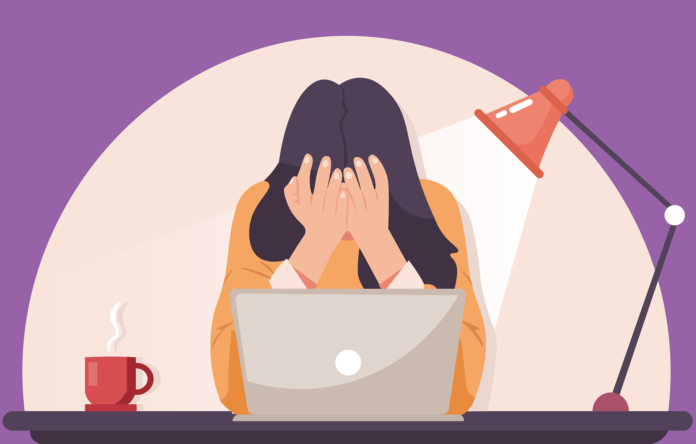Since the past year, everyday lives have changed completely as many people have adjusted their daily routines in accordance with the guidelines for coronavirus prevention. As a result, most are spending time at home even during their office hours due to the shift from in-person to online work.
While working from home can cut down the risk of contracting and spreading the infection to a big extent, it can lead to some other health issues. For instance, people with online work are more stressed than those with in-person jobs.
A recent survey also confirmed that the shift to online work has increased job-related stress. Over forty percent of the two thousand participants in the survey also reported worrying about taking a day off.
Forty-five percent of the participants found to call in for a sick day primarily because of feeling guilty.
According to mental health experts, the feelings of guilt tied to taking a day off comes from the high expectations from online work. The majority assumes that job-related productivity increases when working from home.
Also Read: Vaccinated People Do not Need to Quarantine – CDC States
Because homes are more comfortable than offices, people think they have more chances of getting stuff done. However, it can have the opposite effect. In midst of working more efficiently, most end sitting in front of their laptops or working stations for consistent hours.
They also tend to take fewer breaks in between and even neglect their eating habits or the impact it may have on their sleep. As a result, they are more physically and mentally fatigued.
Over time, this can cause mental and physical health issues. It may even lead to an inability to concentrate, constant irritability, and poor work performance overall.
According to the survey, most people also feel the need to work a lot due to the high expectations of their employers. Nearly sixty percent said their bosses also expect them to work for the same number of hours even when taking a day off.
Such behaviors in the workspace can lead to negative health outcomes, as said by experts. Since the start of the pandemic, most people are more stressed than ever before. Mental burnout is common and a rising number of people are developing disorders.
Even though the outcomes of working consistently also affect physical health, the majority of the participants in the survey said they needed a day off for their mental health.
In comparison with forty-five percent of the people working in-person, sixty percent of those working from home needed more days off for restoring their mental health.
Read more on CDC’s guidelines for maintaining mental health during COVID-19 here.
This highlights the need for normalizing and taking the guilt away from taking a day off. Additionally, open discussions in companies and workspaces regarding having mental health days are equally significant.
Taking a break from work does not only help one person but also other workers around and the company performance in general. It is known that people perform their best when they are mentally and physically healthy.
Without the much-needed breaks in between, there can be fights among workers and people may also not perform as well.




